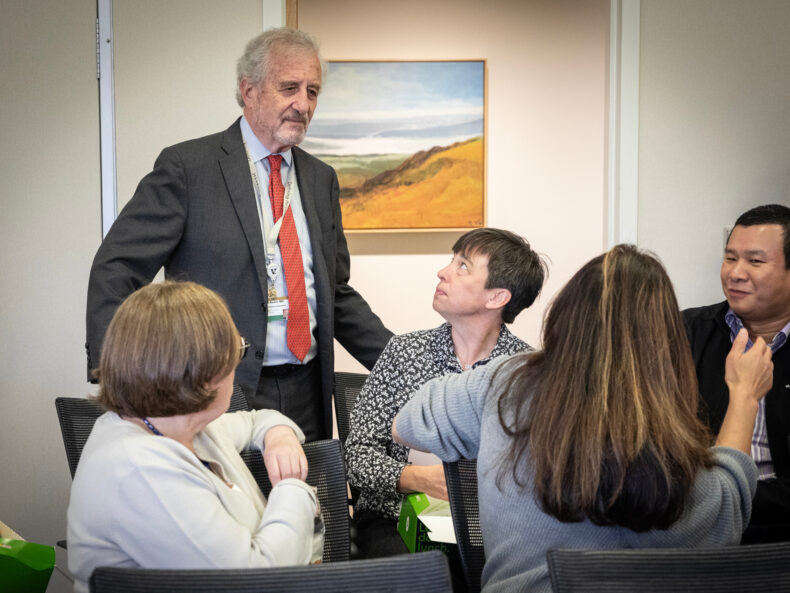
Artificial intelligence (AI) has the potential to transform the practice of medicine but, like any other new tool or method, it needs to be rigorously validated before it is widely applied, cautions Dan Roden, MD, senior vice-president for personalized medicine at Vanderbilt University Medical Center.
In a series of videos recorded by the American Heart Association prior to its Scientific Sessions 2023 held Nov. 11-13 in Philadelphia, Roden, who chairs the AHA’s Council on Genomic and Precision Medicine, described how AI has been shown, in some instances, to outperform physicians in diagnosing disease.
“In a very, very large dataset, particularly a complicated dataset, there are patterns that the human brain cannot appreciate,” said Roden, the Sam L. Clark, MD, PhD professor of Medicine, Pharmacology, and Biomedical Informatics at VUMC.
“That’s because they’re multidimensional or because they’re combinations of very small signals,” he explained. “Techniques of artificial intelligence can actually extract those kinds of signals and make sense of them.
“For the patient, the future really lies in our ability to use AI or other kinds of techniques to personalize medicine,” Roden continued. “One of the ways in which you personalize medicine is personalize prediction.
“You are at high risk for coronary disease, therefore you should do ‘X.’ You are at high risk for developing kidney failure because you have diabetes, therefore you should do ‘Y.’”
AI is limited, however, by the data it’s given. “These systems learn from big datasets, and they only learn from what we give them to learn from,” Roden said.
When evaluating findings based on studies of relatively small numbers of patients, for example, “I would be very careful about widely applying the technologies until we had excellent validation,” he said.
In addition, AI approaches based on datasets that were derived from biobanks whose participants are primarily of European ancestry may not be applicable to people of different ancestries.
That is one reason the national All of Us Research Program, an effort led by the National Institutes of Health to accelerate the development of genomic and precision medicine, is increasing the diversity of its participants through the program’s Engagement Core, which is based at VUMC.
Finally, AI should be compared to other approaches for improving diagnosis. “I think we have to have a thoughtful reflection on what the other tools are, and how they might be combined,” Roden said.
“As we develop more and more tools to predict events like coronary disease, we want to make sure that we use the right ones and we use the right combinations, and don’t start to complicate our lives and the lives of practitioners with a lot of tests that are really of marginal value.”
Whether that is an AI-based approach or a polygenic risk score that can indicate whether a patient is at a higher risk for heart disease, for example, “those are all things the field is working on, and I think it’s really, really exciting,” he said.









